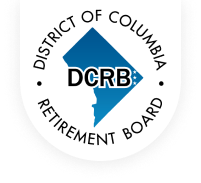Frequently Asked Questions for Survivors
Where do I report a death?
To report the death of a retiree, you should contact the DCRB Member Services Center at (202) 343-3272 or toll free at 1(866) 456-3272. DCRB will send you a list of documents that are required to set up a survivor annuity. Any benefit payments made payable to the retiree that are received after the retiree’s date of death must be returned to DCRB. If you do not return those payments, you will not receive payments as a survivor.
What will my survivor benefit be as a spouse?
The benefit for a surviving spouse is calculated in different ways depending on whether the teacher dies before or after retiring. If a teacher dies before retirement, the survivor benefit will be equal to the greater of 55% of the unreduced annuity the teacher would have received using the teacher’s average salary and years of service at the time of death or a minimum amount established by law.
If a teacher dies after retirement, the survivor annuity is based on the retirement option the retiree selected upon retirement. Teachers have the following three options for determining the amount of the annuity that will be paid to a surviving spouse:
- A Reduced Annuity with Maximum Survivor Annuity, which pays 55% of the retiree’s unreduced annuity to the survivor; or
- A Reduced Annuity with Partial Survivor Annuity, which pays the survivor up to 54% of the retiree’s unreduced annuity.
- No survivor benefit, because the retiree elected to receive an Unreduced Annuity during his or her lifetime.
The amount of the benefit would also be impacted by a QDRO that requires a survivor benefit to be paid to a former spouse.
How long can a surviving spouse receive the survivor benefit?
A surviving spouse is eligible to receive a survivor benefit for his or her lifetime. That annuity would stop, however, if he or she remarries before reaching age 60. The payments would cease at age 55, if a former spouse who is entitled to a survivor benefit under a QDRO remarries prior to reaching age 55.
How long can an eligible child receive a survivor benefit?
An eligible child will receive a survivor benefit until the earliest of the following events:
- the child marries;
- the child turns 18 (or if a full-time student, age 22 or 23, depending on date of birth); or
- the child dies.
If the child is a full-time student, the child and the academic institution must complete a Student Certification Form (available from DCRB) every semester. If the student remains in school, he or she can continue to receive an annuity up to age 22.
An unmarried child, who is incapable of self-support because of a physical or mental disability that occurred before age 18, will receive payments until he or she marries, recovers from the disability, or dies.
If I am single when I retire, can I elect to provide an annuity to someone who is financially dependent on me?
Yes. In such a case, you may elect a Reduced Annuity with a Survivor Annuity to a Person with an Insurable Interest. Under this option, you would receive a reduced annuity during your lifetime and upon your death, the other person would receive 55% of your benefit for the remainder of his or her life. The amount of the reduction in your benefit would be determined by the age of the other person. For instance, if the other person is older than you are, your benefit would be reduced by 10%. If, on the other hand, the other person is 25 years or more younger than you are, your benefit would be reduced by 40%.
